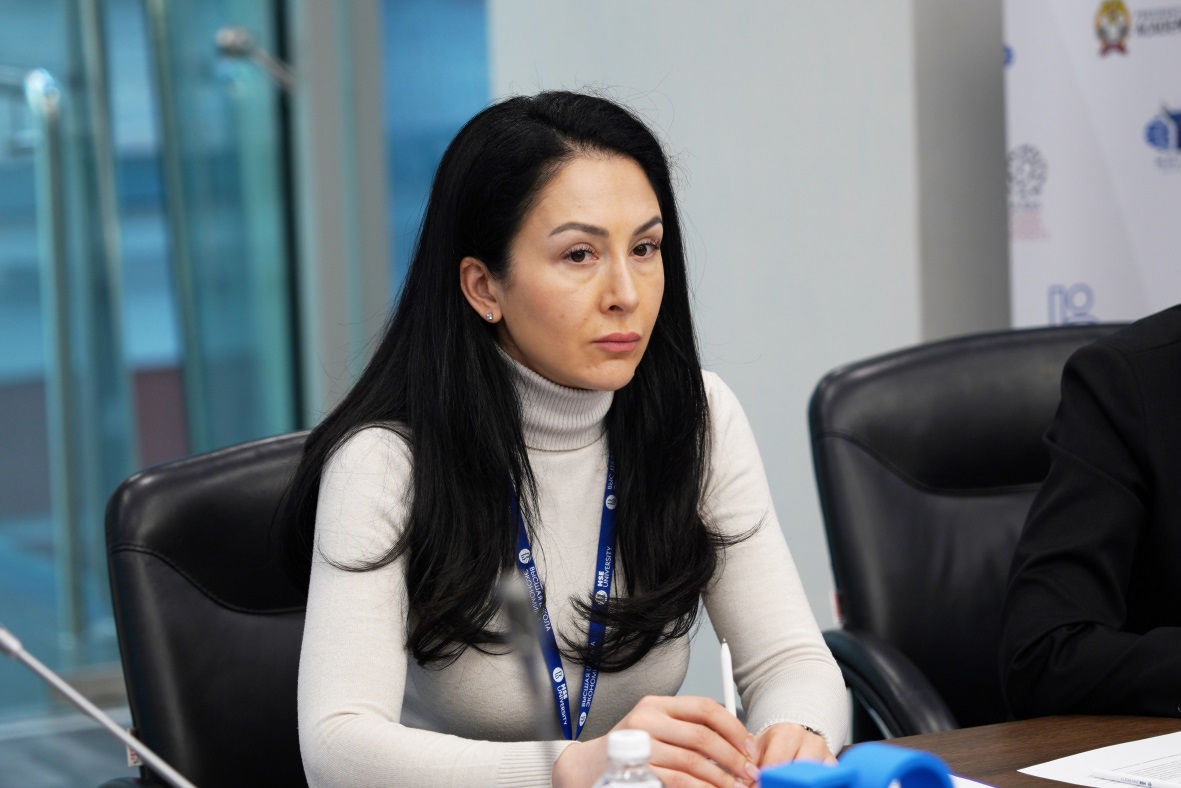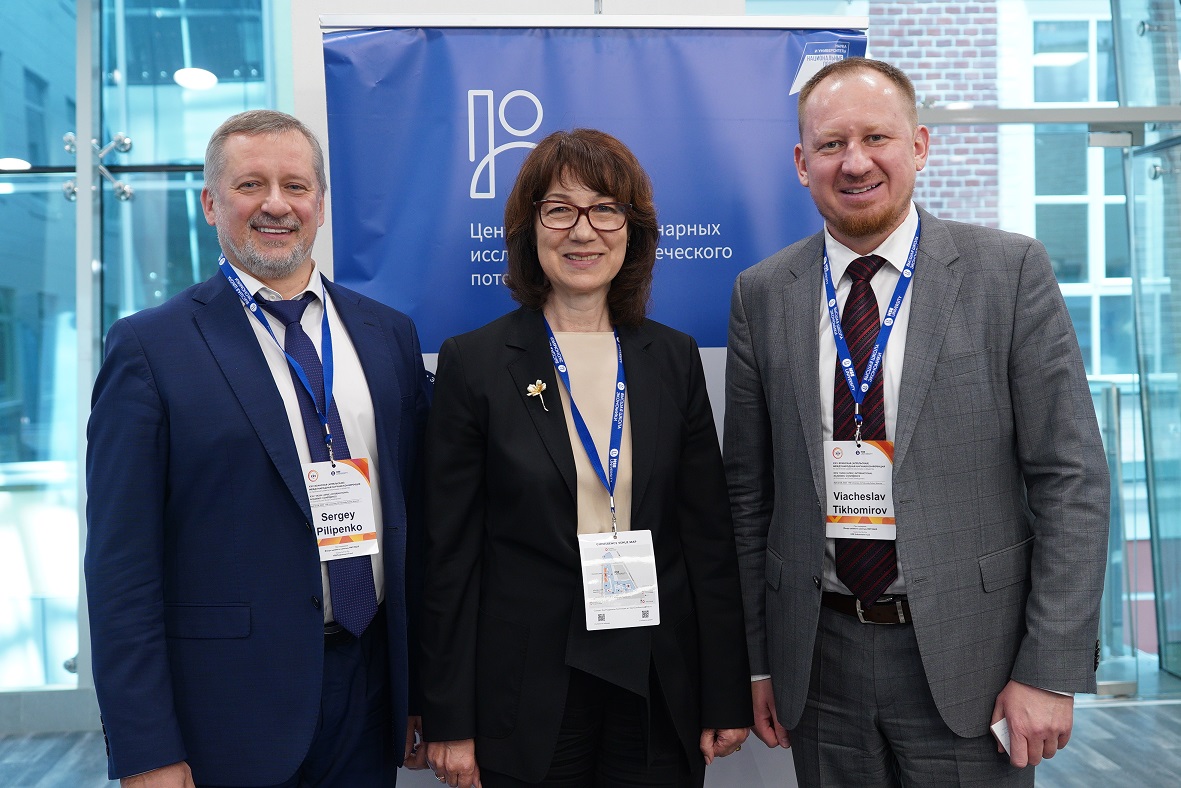Stuck in the Net: How Much Time Children Spend Online

On average, a schoolchild spends 48 hours a week on studies—equivalent to a six-day working week for an adult. This was highlighted by experts at the round table ‘Domains of Children’s Well-Being Evaluation for Human Potential and Evidence-Based Social Policy Development,’ held as part of the 25th Yasin (April) International Academic Conference.
The event was opened by Lilia Ovcharova, HSE Vice Rector and Director of the Institute for Social Policy. She noted that child wellbeing is a key issue not only on the global agenda but also in Russian national projects.

The vice rector pointed to two trends that currently concern experts most: children’s health—including mental health—and their lives in the digital environment. ‘The internet and gadgets make leisure more accessible and diverse, but at the same time, we must acknowledge that prolonged time in the digital realm has now become a threat,’ she emphasised.
According to an OECD report, the optimal amount of time children and adolescents should spend online without negatively affecting their health and wellbeing is two hours on weekdays and four hours on weekends. In reality, however, children are spending much more time in digital environments.

Leila Zotova, Head of the Departmental Project Office of the Federal Agency for Youth Affairs, spoke about measures being implemented under the national project ‘Youth and Children.’ She stated that the project covers all the main aspects of child wellbeing: family, environment, peer relationships, emotional intelligence, support and encouragement of initiative, physical activity, and creativity.
Maria Nagernyak, HSE Deputy Vice Rector and Head of the Centre for Well-Being and Time Use Research, together with centre expert Natalia Mikhailova, presented a study on how Russian children spend their time. The project, ‘Perception of Quality of Life by Children and Parents and Children's Time Budgets,’ was carried out within the framework of the world-class Human Capital Multidisciplinary Research Centre.
The study involved over 1,200 parents and their children aged 5–17, with both groups completing questionnaires. It was found that, on average, schoolchildren spend 48 hours per week studying—the same as a six-day adult working week. In upper secondary school (ages 14–17), girls have less leisure time compared to middle school (ages 11–13), while boys’ leisure time remains stable. Children of parents with higher education tend to spend more of their free time on educational activities during the week, whereas children of parents without higher education spend significantly more time on online games.
The most popular activities among children and their peers are online gaming, watching short videos, and attending sports clubs. On average, children spend about 5.5 hours a day on gadgets during the week, and this increases with age. Children from more affluent families are more likely to engage in educational and active leisure than those from less well-off backgrounds.

Vyacheslav Tikhomirov, Head of the Moscow Office of the Regional UNICEF Office for Europe and Central Asia, and Karen Avanesyan, a statistics and monitoring specialist from UNICEF’s Division of Data, Analytics, Planning and Monitoring, shared international insights and presented the results of a comparative analysis of child wellbeing across various countries. Representatives from Gumilyov Eurasian National University (Kazakhstan), Kuralay Mukhambetova and Gulazia Issakhova, also spoke about their country’s experience in studying and assessing child wellbeing. Additionally, Olga Melnik, an expert from the Maxim Tank Belarusian State Pedagogical University, shared Belarus’s perspective.

Participants in the round table also included Sergej Pilipenko, Vice Rector for Development at the Russian State University for the Humanities, and Lyudmila Goryunova, CEO of Mikhailov & Partners Analytics, who addressed the topics of bullying and cybersecurity among Russian schoolchildren.
See also:
Applications for Participation in XXVI April International Academic Conference Still Open
Applications can be submitted on the conference website until December 16, 2025. The programme has been developed around five research themes: Economics, Human Capital and Society, Instrumental Methods and Models, Foresight Research, and International Research. The heads of these areas have presented, in video format, the priority topics and sections for which they are expecting submissions.
Applications to Participate in April International Academic Conference Now Open
HSE University is now accepting proposals to present academic reports at the XXVI April International Academic Conference named after Evgeny Yasin. Applications can be submitted until December 16, 2025. The conference events will take place mainly on-site in Moscow from April 14 to 17, 2026.
24 Countries Represented at 25th Yasin International Academic Conference Held by HSE University
The Programme Committee of the 25th Yasin (April) International Academic Conference on Economic and Social Development has summed up the initial results. In 2025, 1,384 people from 24 countries and 29 Russian regions participated in the conference, with 335 of them delivering presentations.
Russian and Chinese Scholars Share Experience of Transformation of Doctoral Education
The Russian and Chinese postgraduate education systems originally borrowed their institutional frameworks from the Soviet Union. However, in the 21st century, they have evolved along different paths. While key performance indicators for postgraduate programmes in Russia are declining, China is seeing a rapid increase in the number of postgraduate students. These contrasting trajectories and the reforms undertaken in each country in recent decades were the focus of a roundtable discussion held as part of the 25th Yasin (April) International Academic Conference.
Nobel Laureate Proposes Solution to Markov Equilibrium Problem
In dynamic games, a Markov equilibrium involves strategies that guide players' behaviour based on the current state of the game, rather than its entire history. This approach is effective when players have access to complete information. But when uncertainty arises in the game—for instance, when players are unsure of who they are dealing with—this approach can become problematic. Eric Maskin, Nobel Laureate in Economics and Professor at Harvard University, addressed this issue in a paper presented at the XXV Yasin (April) International Academic Conference on Economic and Social Development held at HSE University from April 15 to 18, 2025.
‘The World Is Becoming More Complex and Less Predictable’: What Scientists Say about the Future
The future is now more difficult for researchers to forecast, and events that are hard to predict are playing an increasingly significant role. But there is good news too: scientists are confident that humanity will adapt to any changes. This was the focus of discussion at the International Symposium ‘Foresight in a Rapidly Changing World,’ which took place as part of the 25th Yasin (April) International Academic Conference.
Fragmentation and Bloc Formation: How the Global Economy is Changing
Sergey Dubinin, former head of the Bank of Russia and Professor of Finance and Credit at the Faculty of Economics at Moscow State University, has delivered an honorary address at the XXV Yasin (April) International Academic Conference. He spoke about the transformation of the global monetary and financial system, as well as the Russian economy.
More Children, More Happiness: HSE Experts Study Impact of Number of Children on Russians' Assessment of Happiness
Russians with children feel happier than those without children. At the same time, the number of children influences the assessment of happiness: the more children Russians have, the happier they feel. These conclusions were outlined inthe report ‘More Children, More Happiness: The Impact of the Number of Children on Russians’ Assessment of Happiness,’ presented at the XXV Yasin (April) International Academic Conference on Economic and Social Development, held on April 15–18 at HSE University. The study was conducted by Elena Churilova, Senior Research Fellow, and Dmitry Jdanov, Chief Research Fellowat HSE International Laboratory for Population and Health.
HSE Expands Cooperation with Gulf Countries
HSE University and the Centre for International Policy Research (Qatar) have agreed to collaborate in the field of social sciences, with plans for joint research, academic exchanges, and regular expert engagement. The agreement was signed during the roundtable ‘State Capacity and State Resilience in the Global South,’ held as part of the 25th Yasin (April) International Academic Conference at HSE University.
‘We Grow Old before We Become Rich’: How BRICS Countries Can Achieve Economic Growth
Due to population aging, many countries aiming for economic prosperity have limited time left to undergo economic transformation, according to the honorary report Narratives Versus Reality on Employment and Demography: How Undermining Institutions Can Push Countries Out of the ‘Narrow Corridor’ by Santosh Mehrotra of the University of Bath. The report was presented at the XXV Yasin (April) International Academic Conference.


